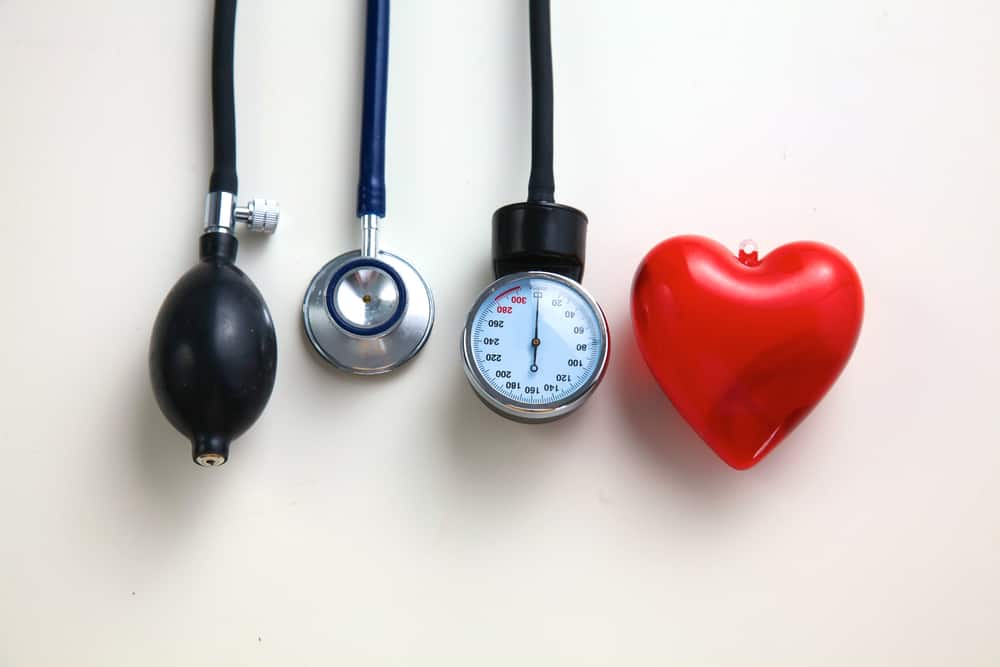High blood pressure treatment depends on the type of hypertension. Hypertension is the name given to a common medical condition in which it is high enough to cause health problems, including heart disease, kidney disease and heart failure. Excessive salt consumption and a sedentary lifestyle can lead to different types of hypertension.
Since the increase in blood pressure in the short term does not cause any symptoms, it should be checked from time to time in the group over the age of 40. It rarely manifests itself with headaches, weakness, palpitation, excessive sweating, buzzing and ringing in the ears, swelling in the limbs, nosebleeds, frequent urination. Essential primary hypertension can cause severe diseases. So, primary and secondary hypertension can cause you many health problems and can be life threatening in the long term.
Types of Hypertension
There are two general types of hypertension. These are primary and secondary hypertension. Under normal conditions, blood pressure is measured at regular doctor visits. Individuals from the age of 18 should have their blood pressure measured at least once every two years under the supervision of a doctor. Individuals between the ages of 18 and 39 who are at risk of hypertension and individuals over the age of 40 should have their blood pressure measured every year.
Children aged 3 years and older also have their blood pressure measured as part of their annual check-up. To determine the difference, the measurement should be repeated on both arms, and a proper sized device should be used. Doctors will likely recommend more frequent measurements in individuals who have already been diagnosed with one of the different types of hypertension or have other risk factors for cardiovascular disease.
Primary Hypertension: High blood pressure has no identifiable cause for most adults. This type of high blood pressure develops gradually over the years. Essential primary hypertension accounts for 90-95% of all hypertension cases. It is the most common form of hypertension. It has been identified that numerous common genes have minor effects on blood pressure and some rare genes that greatly affect blood pressure; however, the genetic basis of hypertension is still not well-understood.
Secondary Hypertension: Some people have high blood pressure caused by an underlying condition. Secondary hypertension tends to come on suddenly and causes higher blood pressure than primary hypertension. It is seen in 5%-15% of people with high blood pressure.
Obstructive sleep apnea, kidney problems, adrenal gland tumors, thyroid problems, some congenital defects in blood vessels, certain medications, such as birth control pills, cold medicines, pain relievers, illegal drugs such as cocaine and amphetamines and alcohol are some causes of secondary hypertension.
In case of inflammation or other damage to the kidney, its capacity to remove salt and water from the body may decrease, which can increase blood volume and blood pressure. Another cause is high blood pressure due to a narrowing of the renal artery. The narrowing may be due to an injury or blockage in the vessel.
Gestational Hypertension: Gestational hypertension is a type of hypertension that occurs during pregnancy and also known as Pregnancy Induced Hypertension (PIH). Hypertension is seen in 6-8% of pregnancies.
Gestational hypertension develops after the 20th week of pregnancy and ends after birth. If the gestational week is still early for delivery when hypertension is diagnosed, the mother should be taken to lie on the left side, salt should be restricted or given up totally, fluid intake should be intake. It can cause serious problems such as preeclampsia (pregnancy poisoning).

How is primary and secondary hypertension diagnosed?
There are some methods to measure different types of hypertension. To measure the blood pressure values of the individual, the doctor usually places an inflatable cuff around the arm and uses a pressure measuring device connected to this cuff. This meter gives blood pressure readings in millimetres of mercury, or mmHg. Systolic pressure and diastolic pressure are the two values that your blood pressure reading uses.
The first and higher number during this measurement measures the pressure formed in the veins when the heart beats, that is, the systolic blood pressure value. The second or lower number measures the diastolic blood pressure, which builds up in the veins when the heart rests between two pulses. It is the name given to systolic blood pressure between 120 and 129 mm Hg and a diastolic blood pressure value below 80 mm Hg. This condition tends to worsen over time unless steps are taken to control primary and secondary hypertension.
Can hypertension be cured?
The most effective treatment method for hypertension will be to eliminate the problem. Therefore, if there is another disease present in the patient, it is started with its treatment in the first place. It will be better to establish a diet that has become a philosophy of life instead of diet attempts to be made for a certain period of time to continue the treatment. Making healthy lifestyle changes are also essential to prevent and reverse resistant hypertension.
Remember that hypertension occurs as a result of the complex interaction of genes and environmental factors. We treat you in the best way by keeping you away from the factors that may cause hypertension in our centers. Besides environmental factors, eating habits are also closely related to hypertension. For example, reducing dietary salt intake and increasing the consumption of fruits and low-fat products are lifestyle factors that reduce blood pressure.
Choosing whole grain flour instead of white flour will be the right step to keep your blood pressure stable, or regular exercise will help balance blood pressure. At the point where all these are not enough, high blood pressure medications that your doctor will recommend can also be a savior.
There are many treatment methods to keep it under control and different types of hypertension. Your doctor will decide after having your health information that which one or more of these will be more effective for your situation. You can lead a healthier life with the treatment plan shaped by your doctor and by making healthier lifestyle choices. To reduce the risk if hypertension, you can check High Blood Pressure (Hypertension) Treatment at TheLifeCo.




